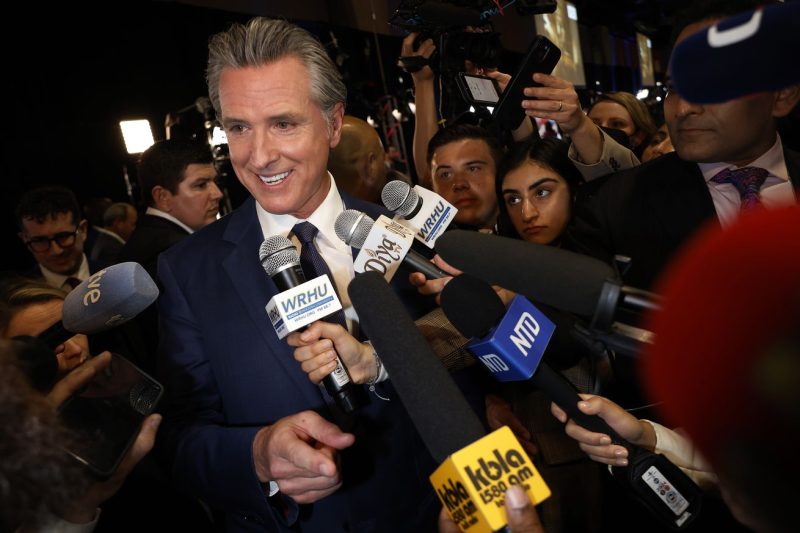In recent groundbreaking news for the entertainment industry, California Governor Gavin Newsom took a significant step by signing new regulations aimed at limiting the use of AI-generated actor clones. These rules mark a milestone in the ongoing dialogue surrounding the ethical and legal implications of digital manipulation in the realm of film and television production.
The regulations come in response to the rising use of artificial intelligence to recreate deceased actors or generate synthetic performances of living actors without their explicit consent. While advancements in AI technology have opened up innovative possibilities for filmmakers, they have also raised concerns about privacy, intellectual property rights, and the potential exploitation of performers.
Central to the new rules is the requirement for filmmakers to disclose the use of AI-generated performances in their projects, thereby ensuring transparency and informed consent from both the audience and the actors involved. This represents a crucial step towards safeguarding the artistic integrity and personal rights of performers in an increasingly digitized industry.
Moreover, the regulations also aim to establish a framework for distinguishing between authentic performances and AI-generated ones, granting actors greater control over the use of their likeness and creative output. By delineating clear boundaries and responsibilities when it comes to the use of AI in entertainment, the rules seek to balance technological innovation with ethical considerations.
The decision by Governor Newsom to sign these regulations reflects a growing recognition of the need for industry-wide standards to govern the use of AI in filmmaking. As AI continues to evolve and expand its capabilities, it is essential to establish guidelines that protect the rights and interests of both actors and audiences, ensuring that creativity and innovation can flourish in a responsible and ethical manner.
Looking ahead, these regulations are likely to serve as a foundational precedent for other states and countries grappling with similar issues surrounding AI-generated content. By setting a precedent for transparency, consent, and accountability in the realm of digital actors, California is sending a clear message about the importance of upholding ethical standards in the age of AI-driven entertainment.
In conclusion, the new regulations signed by Governor Newsom represent a significant milestone in the ongoing conversation about the ethical use of AI in filmmaking. By prioritizing transparency, consent, and artistic integrity, these rules pave the way for a more responsible and sustainable approach to integrating AI technology into the entertainment industry. As the world of cinema continues to grapple with the opportunities and challenges posed by AI, these regulations offer a vital framework for ensuring that the rights and creativity of actors remain protected in this rapidly changing landscape.
